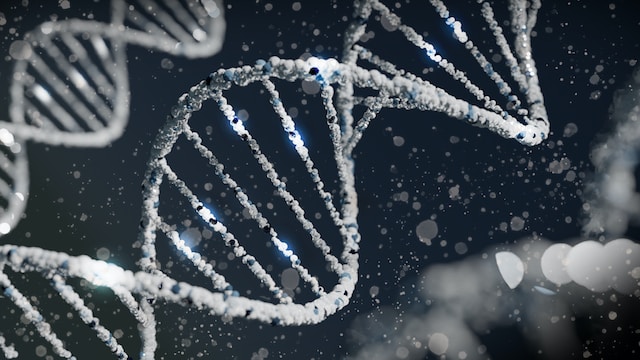Advancements in medical science have paved the way for ground-breaking treatments, such as gene therapies, which aim for solutions to genetic disorders. Among the frontrunners in the field is Ocugen, a biopharmaceutical company cofounded in 2013 by Shankar Musunuri, Ph.D., MBA, CEO and Chairman of the Board, and Uday Kompella, Ph.D. and Board Director.

Ocugen aims to innovate and commercialize novel gene and cell therapies in order to improve patients’ lives around the world. Beyond innovative work in modifier gene therapy, the company’s mission includes vaccine research as well as regenerative cell therapy combining bioengineering and cell processing to enhance joint recovery in orthopedic patients.
Bio.News spoke with Dr. Musunuri about what is behind his motivation to change the landscape of medical technological advancement.
Editor’s Note: The conversation has been edited for length and clarity.
Bio.News: What is Modifier Gene Therapy (MGT)?
Modifier Gene Therapy represents a novel approach to the solution of treating genetic disorders. Where traditional gene therapy targets a single gene mutation, MGT focuses on modifying other genes to compensate for a malfunctioning or a missing gene. They are also known as “master regulators” and act on multiple molecular pathways by either enhancing or suppressing gene activity in order to improve the expression of a disease.
Bio.News: How does MGT work?
Genetic defects have a cascading effect. Two people from the same family may have a different gene expression. With the ability to modify this expression, we have the ability to bring homeostasis and restore function while maintaining a healthy environment.
Gene therapy is a game-changing technological platform, and amongst Ocugen’s ambitious work profile, are novel products, which include OCU400, effective in restoring retinal function in a particular group of inherited retinal diseases such as retinitis pigmentosa and leber congenital amaurosis (LCA). Their work, highlighting the success in re-establishing homeostasis within animal models, was published in Nature Gene Therapy in March of 2020, marking a clinical milestone for the company.
OCU410, or AAV-RORA, is under production for the treatment of macular degeneration. The RORA protein has anti-inflammatory properties and has also been associated with lipid metabolism.
Bio.News: What about cell therapy?
Ocugen’s NEOCART is an autologous neocartilage that was acquired from Histogenics Corporation in 2019. It is an example of both a treatment and a preventative cell therapy. Its unique characteristics include its potential to alleviate pain in the process of rebuilding damaged cartilage in the knee and its ability to expedite the healing process while preventing the progression of inflammatory conditions such as osteoarthritis.
Bio.News: How do you decide which diseases to target?
Ocugen boasts a commitment to caring for patients with rare diseases and conditions that affect millions of patients. Most notably is the company’s desire to support public health on a global scale.
When COVID hit, Ocugen entered the vaccine market and “preferred to contribute rather than sit on the sidelines,” as Dr. Musunuri put it. They made attempts to bring a differentiated vaccine from India, though FDA necessitated U.S.-demographic studies. In short order, the OCU500 vaccine series came about and now includes the bivalent COVID-19 (OCU500), the quadrivalent flu (OCU510), and the combination bivalent COVID-19-quadrivalent flu (OCU520), which are all needle-free administration with an inhaled approach, offering both durability and a lengthy immune response compared with intramuscular injections.
Bio.News: What are some of Ocugen’s promising applications?
Complications secondary to diabetes are a growing concern in the U.S. Among them are progressive diseases causing vision damage. Current treatment with anti-VEGF therapy has only limited success targeting one pathway at a time.
Ocugen’s biologic product, known as OCU200, is multifactorial, utilizing tumstatin for its anti-VEGF, anti-inflammatory, and anti-oxidative properties. While binding to integrin receptors, it has been shown to prevent neovascularization and is under development to treat diabetic conditions such as macular edema, retinopathy, and macular degeneration.
Bio.News: What are the foreseen challenges?
The challenges associated with MGT include the proper identification of modifier genes and understanding their complex structure and interactions. This requires extensive research, complex funding, and advanced technical methods. Additionally, there is the issue of safety and long-term efficacy. Despite the complex network of factors that come into play to meet success, there are a great many possibilities in store for the future of MGT in the world of genetic disorders.
Bio.News: Is there a downside to gene therapy?
“There have been no considerable downsides so far,” said Musunuri. Clinical trials are underway, and they have proven their therapies to be safe. Ocugen’s philosophy is to have “global accessibility and to make bold decisions while being passionate about patient care.”
What’s next for Ocugen and rare disease
Ocugen’s success in MGT shows tremendous promise for the future of a range of genetic conditions with no previous known hope for a cure. By identifying and targeting modifier genes, Ocugen aims to develop tailored therapies that will compensate for defective genes and improve patient outcomes. This work has the potential to revolutionize the treatment of complex diseases and transform the foundation of genetics in an inspiring way.




